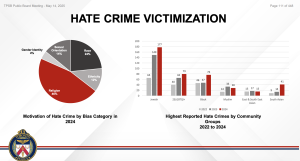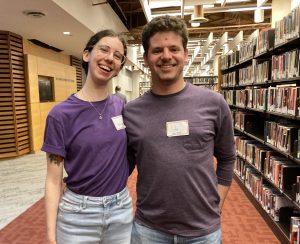Everyone it seems is either afflicted with anxiety or knows someone who is. By age 32, 50 per cent of us can qualify for a diagnosis of anxiety disorder based on the criteria used today.
What has changed? Why such a rise in the diagnosis of anxiety? And has it always been with us?
These are some of the questions examined in The Age of Anxiety, a new film from Emmy Award-winning producer Ric Esther Bienstock and Associated Producers.
It is, of course, normal to be anxious. But when that fear is disassociated from any real or lasting danger, it becomes a sometimes crippling disorder.
The documentary interviews eight people, mostly Torontonians, aged between 12 and 50, who suffer from various degrees of the mental illness. It also seeks expert and differing opinions from six doctors, academics and authors.
The Age of Anxiety suggests that there are two main culprits responsible for the rise in anxiety diagnosis: the pharmaceutical companies and the Diagnostic and Statistical Manual of Mental Disorders (DSM), the “bible” for psychiatrists.
When most doctors, especially busy general practitioners, treat any symptom of anxiety with medication, the pharmaceutical companies obviously stand to gain the most.
The documentary shows how one such company hired a PR firm to blitz the media with alarming “news reports” about the increasing stresses in everyday life.
Diagnosing anxiety disorder is not as easy as doing blood tests and it is very subjective. Today, experts believe, anxiety is being over-diagnosed. It is not uncommon now for someone grieving the loss of a loved one for more than two weeks to be diagnosed with anxiety, when the normal grieving period used to be a year.
“The way things are headed, getting an anti-anxiety prescription will be easier than getting a driver’s licence,” producer Bienstock says. “That’s crazy! I’m getting anxious just thinking about it. Doesn’t mean I should get a prescription.”
Some experts blame the DSM, now undergoing a revision, which keeps adding definitions for anxiety disorders. Will the broadened criteria for anxiety, prescription happy GPs and a hectic society turn us all into mental health patients?
The Age of Anxiety is an informative and balanced look at what is being called the disease of the 21st century. It has its world premiere on CBC Television’s Doc Zone on March 15 at 9 p.m.






